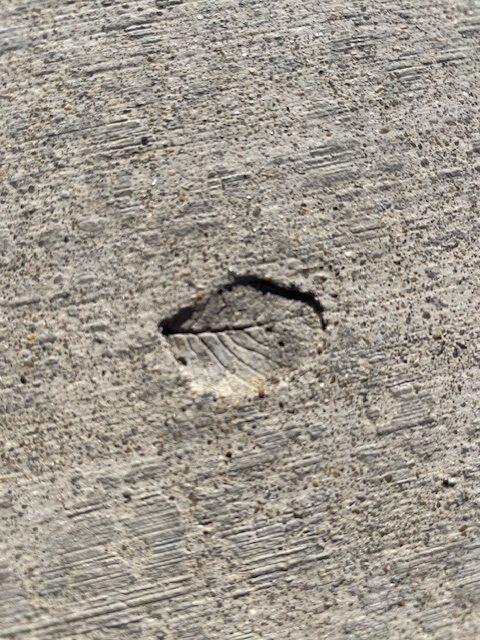Every Day, I Quit Writing

In writing, bravery comes in small, private acts. It’s sitting with the blank page, knowing the stories you want to tell might be too much—too difficult, too raw, too risky. Publishing, though, requires audacity. It’s taking those same stories and sharing them with a world that might misunderstand, critique, or ignore them.
I sometimes think of the days before I published and how often I relied on the voice of others to be my compass. If the voices said the writing was good, it was my validation. If they said I needed to revise, I overhauled entire scenes to fit the mold.
One writer told me I couldn’t write my debut novel as it was. “You’ll never get an agent,” she said, her advice couched as concern. She loved the story and felt it was important, but she wanted me to remove the parts that made it hard to read. For a moment, she almost had me.
I turned to my husband, frustrated. “What do I do now?” I asked him. “Change it? Rewrite the whole thing?”
He didn’t hesitate. “No,” he said. “Keep doing what you’ve been doing. Say what you need to say, how you need to say it.”
So I did. I rediscovered the part of myself that had survived the early fires of my adolescence—the version of me who could withstand. That girl learned to push forward, even when the wind fought back. She was done seeking approval, and so was the adult, writer version of me. That version of me became tired of telling her stories in parts to make them easier to swallow. My novel would be whole or it would be nothing.
The writer who said I’d never publish was wrong. Remarkably, my journey from querying an agent to securing a book deal unfolded with ease. But with publishing, as with life, the pendulum swings. What feels like a high can quickly give way to lows that leave you questioning everything.
Having entered publishing after years in other careers, I expected it to function like a business—logical, predictable, with rules that made sense. It doesn’t. Publishing is less like business and more like life itself: complex, inexplicable, and often unfair. You can’t work hard enough for things to happen the way you envisioned.
I realized this most clearly when speaking to another debut author. We shared a quiet truth about our debut year: The fear of appearing ungrateful forced us both to ride the rollercoaster without screaming. The highs—the reviews, the festival invitations, the chance to meet readers—can be exhilarating. But they also magnify the lows: the anxieties, the self-doubt, the moments when you feel invisible.
“I’m just ready for it to be over,” she said, and I felt seen.
“I quit every single day,” I admitted to her. “As soon as I wake up, I say I’m never doing this again.”
She nodded, knowing exactly what I meant.
I see echoes of my experience everywhere, even in my children. When my son ran for student council president, we made posters at the kitchen table. He hesitated for a moment, marker in hand, and said, “Mom, what if no one looks at them? What if no one cares? What do I do if I lose?”
How could I warn him of the heartbreak that comes from pouring yourself into something that might go unnoticed? I couldn’t. Instead, I told him what I hoped was true: “The right people will care. Your ambition and ideas exist, even if no one cares. That means you can’t lose.”
Later, I found myself reflecting on my own advice. I had to live in it. I had to remember my work mattered, independent of what the world saw in it.
My compass led me back to my writing desk, a cozy corner overlooking the elms and oaks shedding and regrowing their leaves through the seasons. Another story about Black girls fighting against the wind is taking shape here. It’s not as raw or thematically similar to my debut. I’ve said all I need to say about the hypocrisy of misogyny, racism, and power imbalances, and more importantly, I said it how I wanted to say it. Now I sit in the presence of new characters, hoping to capture their stories through the fresh understanding this year has gifted me.
I understand now that writing isn’t just about opening a vein and bleeding onto the page—it’s an act of faith. You must believe that your muse won’t slip away, that your ideas matter, that you can create something beautiful from something as fleeting as an image or an overheard conversation.
I learned that belief is sustained by love. When you love writing, you find a way through the uncertainty. You push forward even when doubt begs you to retreat. You wake up, open your laptop, and try again. Each time, you prove something to yourself: that you deserve to be here.
The rollercoaster I longed to stumble off doesn’t exist because writing and publishing isn’t a rollercoaster. It’s a cycle that each one of us who chooses this journey will experience. Those who have come before me knew it. Those who come after me will see it.
Every day, I quit writing. And every day, I begin again.
Every day, I choose to listen to the whisper that says, You still have something to say. Keep going.
That’s the voice that guides me, and I follow it, even though the path is steep and uncertain.
There is no other way.

